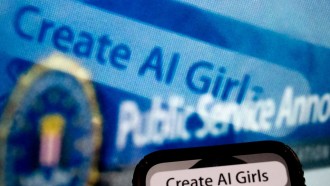Being unemployed is stressful, that's undeniable, but long-term unemployment might actually change someone's basic personality type, researchers are saying.
Regardless of what you are normally like, being without a job for a long time can turn you into a less-agreeable personality, they say.
A group of researchers in Britain say the change can come about if a person is out of work for more than a year.
The findings challenge the assumption that personalities are "fixed" and suggest external factors, in this case unemployment, may have a significant and permanent impact on personality, says Christopher J. Boyce of the University of Stirling.
The study looked at 6,769 adults, 461 of who were out of work for various lengths of time, and surveyed them for important personality traits including agreeableness, extroversion, openness, conscientiousness and neuroticism.
After two years of unemployment men in the study group were less agreeable, and women in the group became less agreeable after one year without a job, the researchers found.
"This indicates that unemployment has wider psychological implications than previously thought," Boyce says.
Those changes did not occur the moment people became unemployed, Boyce noted; for example, men actually became more agreeable during the first two years they were unemployed, but the level of agreeableness then plummeted with longer periods of being out of work.
"In early unemployment stages, there may be incentives for individuals to behave agreeably in an effort to secure another job or placate those around them, but in later years when the situation becomes endemic, such incentives may weaken," Boyce says.
The personality traits most changed by unemployment -- conscientiousness, agreeableness and openness -- can negatively affect a person's chances of finding employment, the study authors suggest.
Unemployment may lessen conscientiousness, they suggest, because the out of work person is given fewer opportunities to show focus and motivation that brings achievement in the workplace.
Being taken out of a work environment with its interaction with fellow co-workers can also impact agreeableness and openness, both considered social behaviors, they say.
The research suggests being out of work can become more than just an economic concern and can cause unemployed people to be unfairly stigmatized because of their altered behavior and personality.
"Public policy therefore has a key role to play in preventing adverse personality change in society through both lower unemployment rates and offering greater support for the unemployed," he says.
Reducing unemployment is important for both protecting the economy and enabling positive personality growth in individuals, he suggests.








